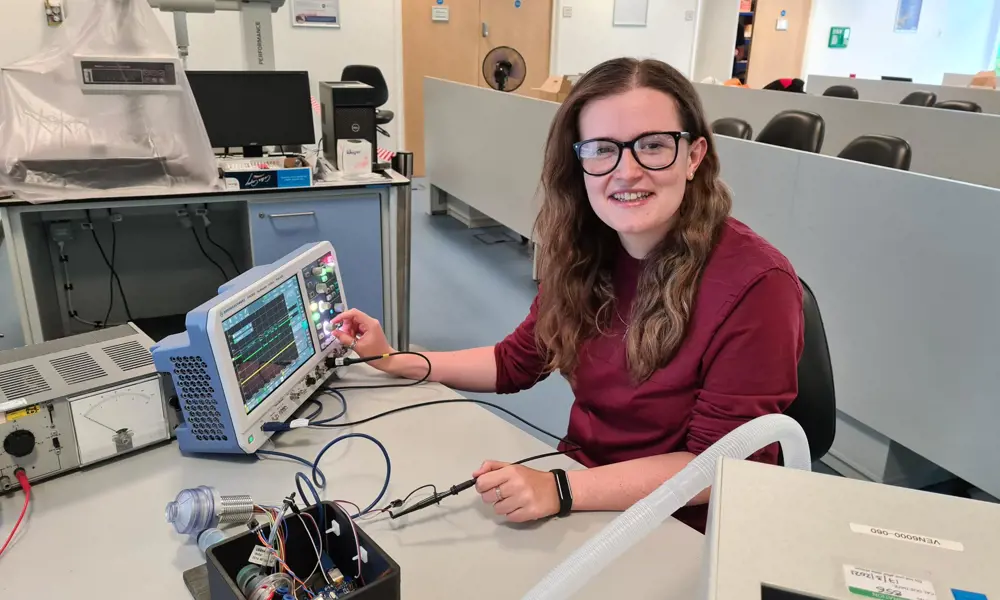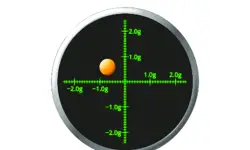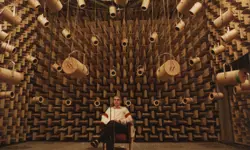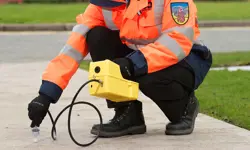
Q&A: Jean Morris
Why did you first become interested in science/engineering?
When I was younger, we had a big book called How Things Work and it absolutely fascinated me. I would spend hours with my twin brother taking apart different things around the house to see how they operated, and our parents hated us! The intrigue behind how everyday things (and more exotic machines like satellites) work has kept me enthralled with engineering.
I would spend hours with my twin brother taking apart different things around the house to see how they operated, and our parents hated us!
Quick-fire facts
Age:
26
Qualifications:
MPhys
Biggest engineering inspiration:
Margaret Hamilton (who was responsible for the new code written for the Apollo mission)
Most-used technology:
3D printing
Three words that describe you:
sporty, enthusiastic and Welsh!
How did you get to where you are now?
I studied physics, maths, chemistry, and English at A level and did a master’s in physics at Lancaster University (which I got into through clearing!). After university, I joined a graduate scheme at Airbus where I was a space systems engineer specialising in radio frequency analysis of telecommunications satellites (one of the satellites I worked on is now in orbit). I also did a placement in Munich where I worked on machine learning algorithms. After this I became a research engineer at the National Physical Laboratory (NPL) and have worked on a multitude of projects, from atomic clocks and a satellite calibration instrument, to the Kibble balance, which redefined the kilogram in 2019
What has been your biggest achievement to date?
In 2020, I helped set up the new ventilator testing facility and led a team that created a low-cost ventilator prototype, for which the Royal Academy of Engineering awarded me the President’s Special Award for Pandemic Service.
What is your favourite thing about being an engineer?
I have a passion for physics, and engineering is essentially realising physics in the everyday world. It’s amazing going from an equation or a model to something that moves and works right in front of you! What does a typical day involve for you? Every day is completely different depending on the project I’m working on. Currently, I do lots of electronics design and test, so I’m often picking up a soldering iron and then doing some design or analysis work on a computer. I also help design the enclosures these electronics boards sit in so I do lots of 3D printing.
What would be your advice to young people looking to pursue a career in engineering?
Don’t think that just because you’re not top of your class that you can’t be an engineer. There are so many different qualities that make a good engineer, from working with others to problem-solving to aesthetic design skills. Enthusiasm and a willing to learn are the main attributes of a good engineer.
What’s next for you?
I hope to be able to publish some papers and work on something related to climate change as that is one the most pressing topics at the moment. Hopefully in a few more years’ time, I’ll be leading a project of national importance at NPL.
***
This article has been adapted from "How I got here- Jean Morris", which originally appeared in the print edition of Ingenia 91 (June 2022).
Keep up-to-date with Ingenia for free
SubscribeRelated content
Electricals & electronics

Accelerometers
Used in earthquake measurements, laptops, planes and even in stargazing apps, today’s accelerometers are much smaller than when they were first developed in 1927. Find out how they detect movement and vibration.

How to maximise loudspeaker quality
Ingenia asked Dr Jack Oclee-Brown, Head of Acoustics at KEF Audio, to outline the considerations that audio engineers need to make when developing high-quality speakers.

Cable fault locator
The winner of the Institute of Engineering and Technology’s 2014 Innovation Award was EA Technology’s CableSnifferTM, which uses a probe and chemical sensing technology to identify faults, saving energy companies millions of pounds each year.

High speed evolution
In December 2010, Eurostar International Ltd awarded a contract for 10 new high speed trains to Siemens. The company has used a system developed over decades to maximise the performance and passenger-carrying ability of its 320km/h trains.
Other content from Ingenia
Quick read

- Environment & sustainability
- Opinion
A young engineer’s perspective on the good, the bad and the ugly of COP27

- Environment & sustainability
- Issue 95
How do we pay for net zero technologies?
Quick read

- Transport
- Mechanical
- How I got here
Electrifying trains and STEMAZING outreach

- Civil & structural
- Environment & sustainability
- Issue 95